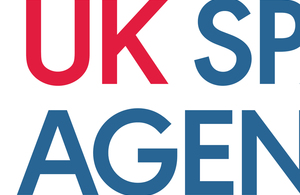MicroLaunch Rectenna
Developed by Thales Alenia Space UK (TAS - UK) in 2016-17 through the National Space Technology Programme funding.

MicroLaunch is Thales Alenia Space UK’s (TAS - UK) potentially game-changing concept for the launch of small satellites (<100kg) into low Earth orbit. The aim is to make cost and turnaround improvements over ten times better than other future small satellite dedicated launchers.
The concept represents novel developments in the field of microwave beamed launchers; a type of orbital launch system which generates thrust from wireless energy transmitted to it from a specialised ground station. By removing the need to store energy in the propellant, inert fuels and a thruster fuel efficiency many times greater than conventional chemical rockets can be achieved. This greatly reduces the mass and complexity of the launcher. Higher fuel efficiency also removes the need for multiple stages on a launcher; significantly reducing the cost of developing and operating a fully reusable system. An envisioned fleet of MicroLaunch vehicles operating from a single UK Spaceport could launch over 1,000 small satellites per year by 2030 at a potential cost of <£5,000/kg.
This study, funded by the UK Space Agency’s National Space Technology Programme, was carried out between September 2016 and March 2017. It investigated the key microwave rectenna technology required to enable this concept. TAS-UK was joined by its partners the University of Warwick, experts in Silicon Carbide diode design, and Thales Research and Technology, experts in microwave engineering, to determine the feasibility of the concept and advance the design. The project successfully completed its objectives while finding no technical show stoppers with the proposed concept and updated the baseline vehicle design.
Plans for a follow-on phase of experimental proof-of-concept have been defined.